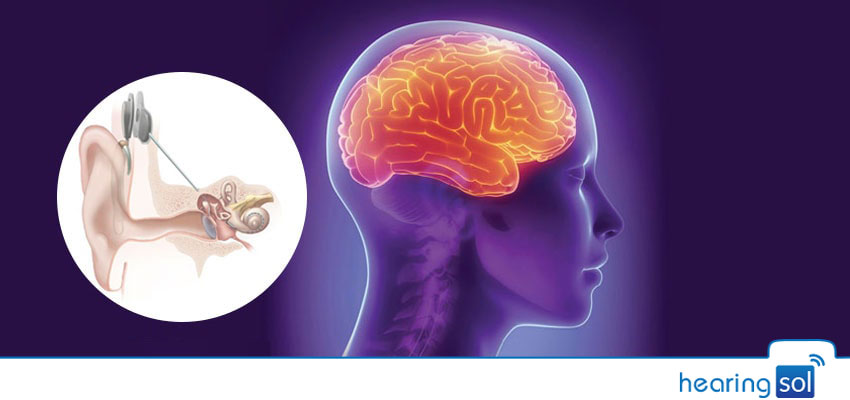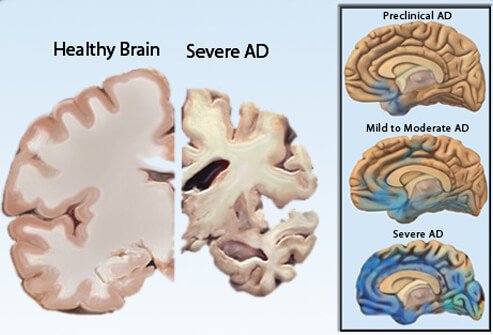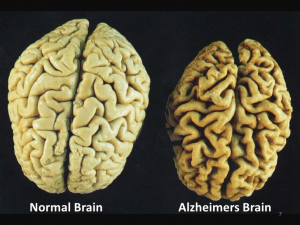
As the size of the brain gets smaller with the aging, the shrinking of the brain seems to be fast-tracked in older people having hearing loss.
Hearing loss is so common that it is long been viewed as an ordinary phase in aging. But research from Johns Hopkins University has observed links between cognitive decline, dementia, and hearing loss.
- How Dementia And Hearing Loss Influence Brain?
- Hearing Loss Linked to Accelerated Brain Tissue Loss
- Does Hearing Loss Lead To Dementia?
- Hearing Loss And MRI Results
- What Do You Need To Know?
- What To Do After Knowing The Symptoms?
- Latest Research By Audiologists
- Three Main Theories For – How Hearing Loss May Contribute To Cognitive Decline And Dementia?
You can purchase the latest hearing aids at a fair price through HearingSol, If you need any assistance or you have a query regarding Dementia and Hearing Loss, feel free to call us at +91-9327901950. We are always here to help you.
That potential that it may additionally be an increased health danger than imagined and that measures as simple as hearing loss ought to have a massive influence on wholesome intelligence function.
How Dementia And Hearing Loss Influence Brain?
Really it’s very vital in case, listening to the impaired impact on the brain. Diverse studies have resulted that hearing loss can negatively have an effect on memory and thinking abilities.
JAMA Internal Medicine found that there is a huge risk of dementia and cognitive decline amongst seniors with hearing impairment.
Hearing impairment in older adults is independently associated with longitudinal research with an accelerated cognitive decline and incident dementia, and in cross-sectional studies, with decreased volumes in the auditory cortex.
Whether peripheral listening to impairment is related to accelerated rates of Genius atrophy is unclear declines in the complete brain and regional volumes in the right temporal lobe.

The above-shown image shows the condition of the brain before and after the severe atopic dermatitis(AD) attack at its different stages.
These results had been sturdy to adjustment for multiple confounders and have been consistent with voxel-based analyses, which additionally implicated proper larger than left temporal regions.
These findings exhibit that peripheral listening to impairment is independently related to accelerated brain atrophy in entire Genius and regional volumes concentrated in the proper temporal lobe.
Hearing Loss Linked to Accelerated Brain Tissue Loss
Although the intelligence becomes smaller with age, the shrinkage looks to be fast-tracked in older adults with hearing loss, in accordance with the effects of a study by way of researchers from Johns Hopkins and the National Institute on Aging.
The findings add to a developing listing of health penalties related to hearing loss, which includes an extended chance of dementia, falls, hospitalizations, and diminished bodily and intellectual health.
When hearing loss occurs, areas of the brain dedicated to other senses such as vision or touch will definitely take over the areas of the brain which commonly process hearing.
It’s a phenomenon called cross-modal cortical reorganization, which is reflective of the brain’s tendency to compensate for the loss of other senses.
Essentially, the brain adapts to a loss via rewiring itself. It is a sort of makeover, however one that can have a severely dangerous effect on cognition. Even early degrees of hearing loss can lead to cognitive decline.
Read more:- How does the hearing aid machine help old people.
Does Hearing Loss Lead To Dementia?
Dementia is a medical term that is used to describe a host of symptoms, characterized by a deterioration in a patient’s cognitive abilities.
Hearing loss and dementia are more common as you get older. Scientists have found that a person’s chances of mental decline seem to go up to worsen their hearing problems.
The investigators also suggest that hearing loss requires so much ”brain effort” over the years to decode sounds into useful information, that those with hearing loss become more vulnerable to dementia.
The sole reason behind linking Dementia and Hearing loss is the amount of effect it provides to the brain. Due to similar activities involved in a similar part of the brain can be a link between hearing loss and dementia.
A person may have dementia if at least two of his mental faculties are affected: the loss of memory and focus; difficulty communicating.
If you want to try to lower your chances of hearing loss as you age, try to keep your heart healthy, protect your hearing from loud noises, and don’t smoke. Smoking is a big risk factor for sensory loss.
Alzheimer’s Disease (A Type Of Dementia)
Alzheimer’s is a kind of dementia that reasons issues with memory, questioning, and behavior. Symptoms commonly enhance slowly and get worse over time, turning into severe adequate to interfere with daily tasks.
Symptoms of Alzheimer’s Disease
The most frequent early symptom of Alzheimer’s Disease is a challenge in remembering newly learned facts because Alzheimer’s modifications commonly begin in the phase of the brain that impacts learning. As Alzheimer’s advances via intelligence, it leads to increasingly more extreme symptoms such as,
- Disorientation
- Temper and behavior changes
- Deepening confusion about events, time and place
- Unfounded suspicions about family, friends and professional caregivers
- Greater serious reminiscence loss and conduct changes
- Concern speaking, swallowing, and walking.
Read more: Why ear protection is important?
Hearing Loss And MRI Results

After evaluating the MRI Scan of hearing disabled over the following years, results in upcoming arguments of Neuroimage.
- Already impaired people, at the beginning of the sub-study had increased rates of brain atrophy(shrinking) compared with normal hearing.
- More than an additional cubic centimeter of brain tissue shrinks each year compared with those having normal hearing.
- Shrinkage occurs in a specific area with those people who have impaired hearing.
- With superior brain architecture, a middle and inferior area is also there for processing sound and ‘speech-language’. So, the hearing aids devices were reported by the scientists as a hearing loss solution.
Sound and speech are there to affect people with hearing loss was not a surprise because the architecture of the brain is responsible.
Those areas may simply be a consequence of an “impoverished” auditory cortex, which turns into atrophy from lack of stimulation. However, they add,
This architecture of the brain don’t work in isolation, and their responsibilities don’t end at arranged out sounds and language.
What Do You Need To Know?
The scientist recommends that a common pathology can underlie both or that the strain of decoding sounds. Scientist utilizes it to crush the brains of individuals with hearing loss, even escaping them make more access to dementia.
Deafness leads to dementia, they make everyone socially isolated, a component of risk for dementia and other cognitive disorders.
“We see the deep effect of hearings aids having on our patients every day,” said Doctor of Audiology, “This study offers information on possible health consequences conclude with hearing loss, including dementia and brain shrinkage.”
As an outcome of this and other leading investigations, we are continually educating our people with hearing loss about the link between hearing, Hearing Sol, and cognition.
The concept states earlier that research from other studies had a related hearing loss with marked variations in brain architecture. Whether these brain architectural differences occurred before or after hearing loss.
What To Do After Knowing The Symptoms?
When you find these symptoms of the hearing loss in yourself, family member, colleague, or friend then, visiting the nearby audiologist should be prioritized.
And when the hearing loss is addressed after a certain test then, consult an audiologist for the proper solution for your disability which can be adopted through hearing protection method or managed by hearing aids.
The care and cure of hearing loss at its specific time can return your hearing ability or it may persist if left untreated. Still, investigators have the latest information regarding hearing loss that may show you even huge risk.
Diverse studies now express how a hearing impairment may have a significant shock on the onset of dementia and Alzheimer’s disease.
It’s accelerating too soon so, it’s important to encourage your friends, family and loved ones to have hearing protection before any exposure to loud noise.
At the same time, the latest outcomes have displayed some individuals with deep hearing loss experience increased rates of brain/grey stuff shrinkage which are responsible for processing sound and speech-language.
Most generalized studies used to present uncured hearing impairment being connected to higher rates of anxiety and depression.
At last determine, if your friend or a family member is experiencing symptoms of hearing impairment. It is important to get your hearing tested on time by consulting your hearing specialist or an audiologist.
At least, you’ll have a basic line with which you can easily compare results. You should not avoid other symptoms like memory loss or cognitive decline, cure of hearing loss can be sought with a physician.
Who specializes in dementia or Alzheimer’s to delay its onset or slow progression.
An additional cubic centimeter of brain tissue shrinking annually to people with hearing loss and also used to have compelling brain shrinkage in various parts of the brain according to the specialist research.
Latest Research By Audiologists
An international study about the link between hearing loss and dementia has attracted a lot of attention in the last months.
Due to the growing interest and concerns of some of our readers, Action on Hearing Loss Audiologist Specialist Vaitheki Maheswaran critiques the modern-day lookup on the topic.
According to a worldwide find out about in the Lancet, it is estimated that there had been 46·8 million people living with dementia international in 2015, which is likely to amplify to 131·5 million by way of 2050. 58% of people with dementia stay in low earnings and middle earnings countries.
It is expected that the numbers affected through dementia to double in high-income international locations. But extra than treble in low and middle-income countries through 2050.
Three Main Theories For – How Hearing Loss May Contribute To Cognitive Decline And Dementia?
1. Cognitive Load
If the brain is constantly coping with degraded sounds, its resources are dedicated to processing those sounds, to the detriment of other processes like memory and thinking.
2. Brain Atrophy
Hearing impairment may directly contribute to accelerated rates of atrophy in parts of the brain that process sound. Those parts of the brain don’t work in isolation, according to Lin; they “also play roles in memory and sensory integration and have been shown to be involved in the early stages of mild cognitive impairment and Alzheimer’s disease.
3. Social Isolation
People who have a hard time hearing often withdraw because it’s so difficult to communicate with others. Numerous studies have found that a loss of engagement and loneliness are risk factors for cognitive decline.
At last, it is the responsibility of the doctor to focus on cognitive problems due to hearing loss, which if avoided can be a big opportunity missed.
It would be twice beneficial to correct hearing loss on cognition as compared to benefits from any cognitive-enhancing drugs available in the market. It should be the prime thing to focus on.
You can purchase the latest hearing aids at a fair price through HearingSol, If you need any assistance or you have a query regarding Dementia and Hearing Loss, feel free to call us at +91-9327901950. We are always here to help you.

 Reviewed by Mr. Ranjeet Kumar
Sr. Audiologist, Speech Therapist & Cochlear Implant Specialist, BASLP on
Reviewed by Mr. Ranjeet Kumar
Sr. Audiologist, Speech Therapist & Cochlear Implant Specialist, BASLP on